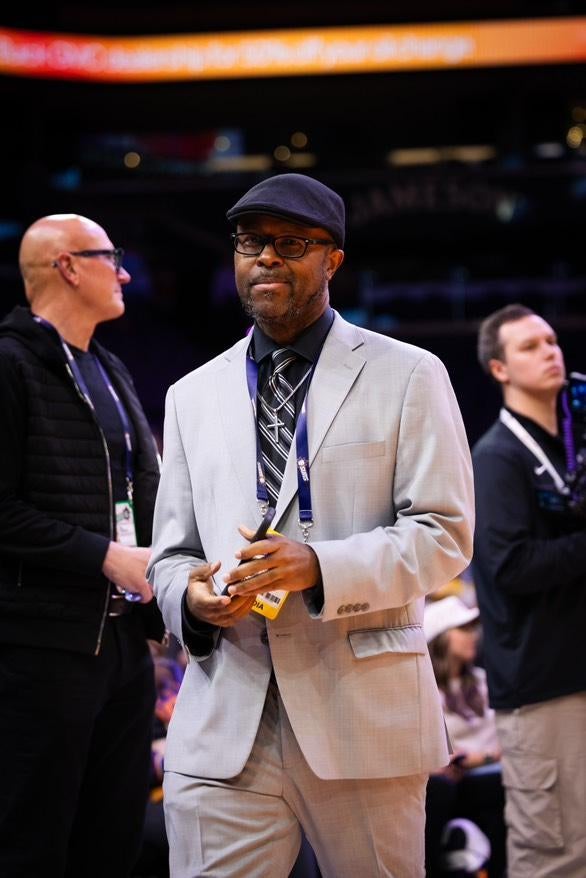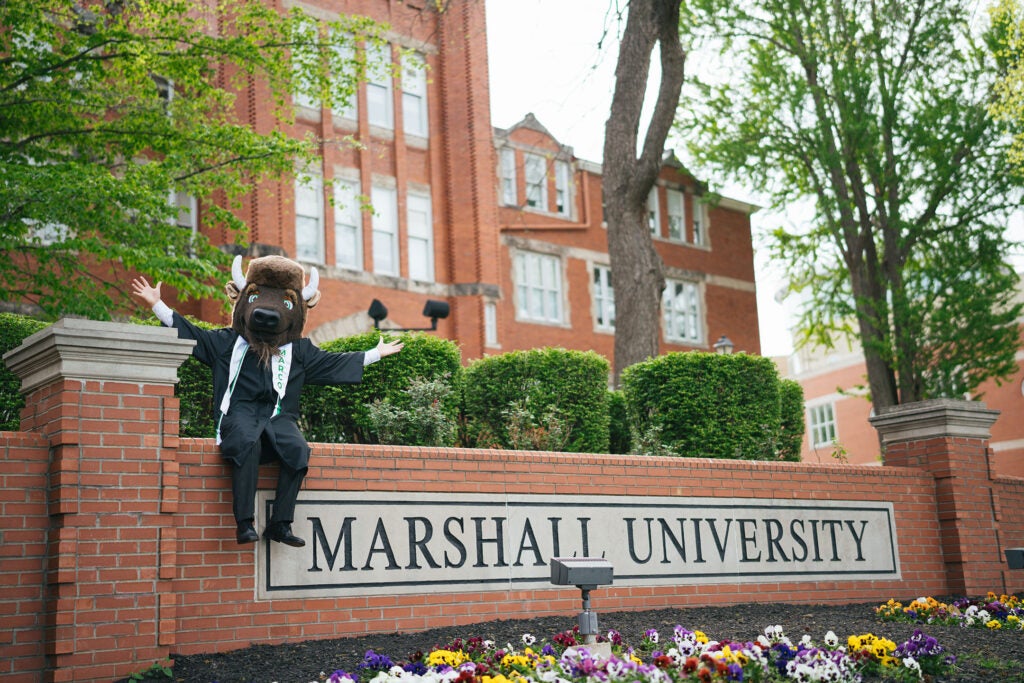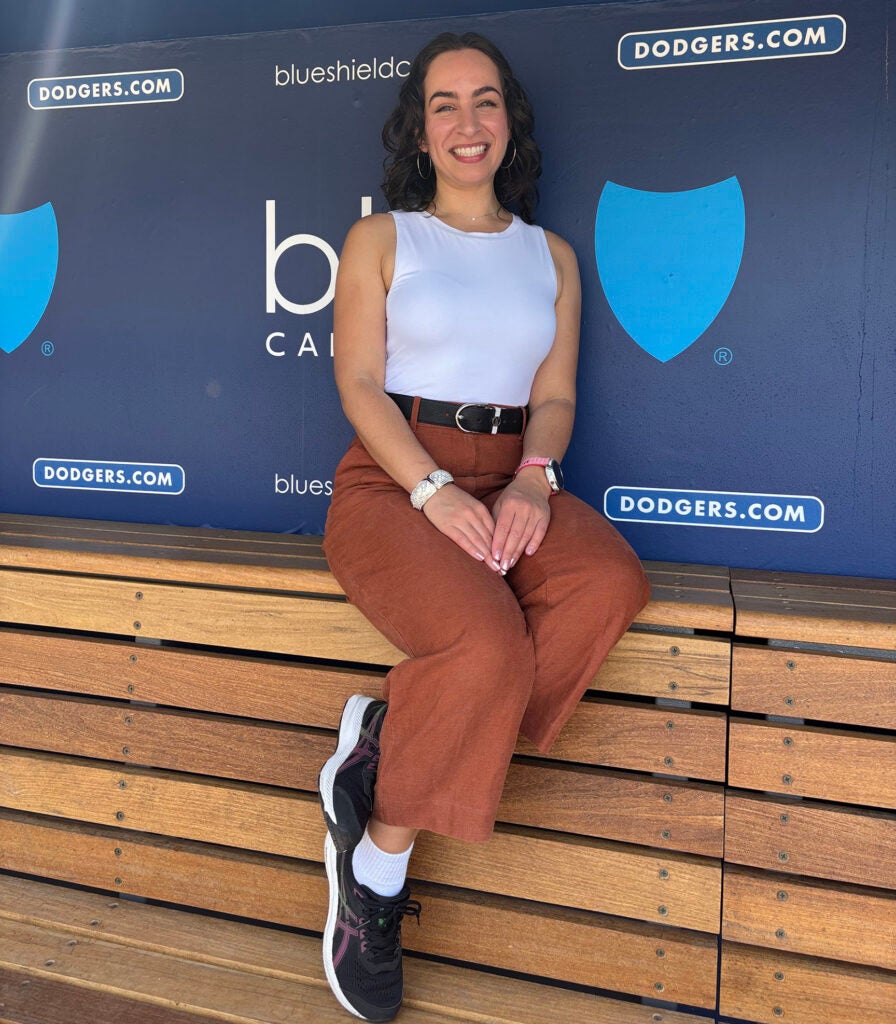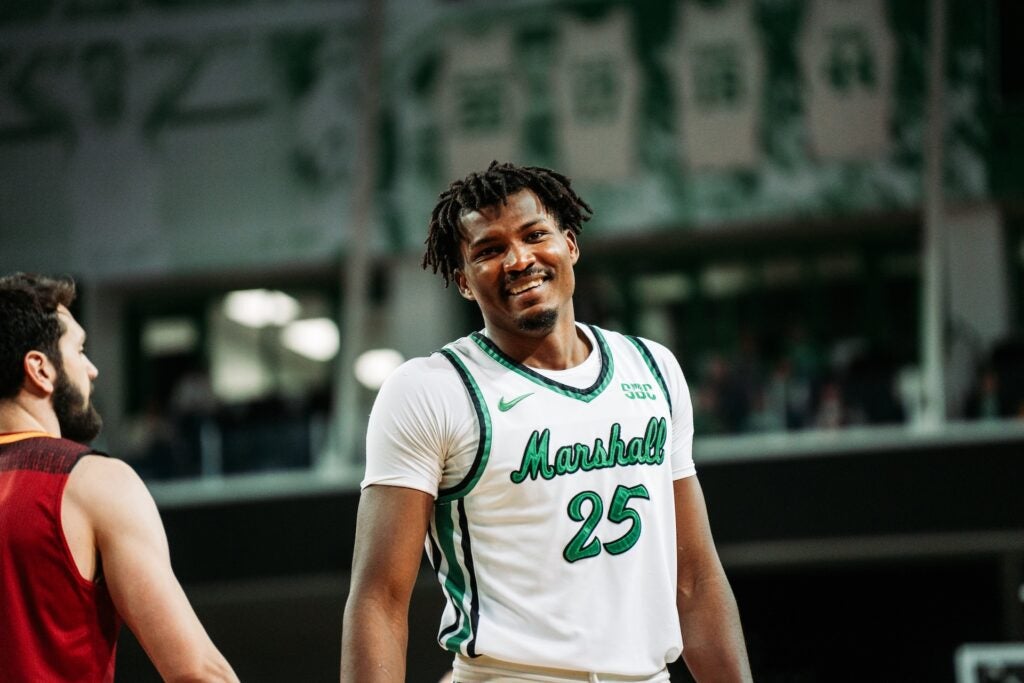When Trace Clark was 18, his father was severely injured in a tree accident. Living in a rural area in southern West Virginia, he had to be flown to a hospital with a trauma unit for treatment. Fortunately, his father survived, but Trace was hit hard by the message relayed by the primary physician afterwards: If it had taken his father any longer to get treatment, he wouldn’t have made it.
“I couldn’t thank them enough, and I knew that I wanted to prevent similar situations from happening when I became a physician,” he said.
Trace had long known he wanted to be an orthopaedic surgeon someday. But in that moment, he knew that he wanted to serve a rural community. He chose Marshall University as the institution to prepare him for that career, and he’s glad he did.
As a participant in Marshall’s Early Assurance Program, the senior biochemistry major has already been accepted to Marshall’s Joan C. Edwards School of Medicine. He’s grateful for both the excellent teaching by Marshall’s faculty and the enhancement experiences offered to students who participate in the Early Assurance Program.
“Marshall has been excellent to me, from all the opportunities that they offer to each professor that I have had,” Trace said. “It’s all been great. Not only that, but Marshall is also growing and getting better each day that goes by, and that includes the areas around it like Huntington and Barboursville. I have had the time of my life at Marshall, and I can’t imagine what it would have been like to go somewhere else.”
Even when attending Mingo Central High School and looking at colleges, he could tell that Marshall would be a perfect fit.
“I chose to attend Marshall for a couple of reasons, with the largest reason being that it was the Goldilocks school for me,” said the 21-year-old, who grew up in Williamson, West Virginia, loving to hunt deer in the fall and turkey in the spring, and to hang out with his friends, play video games and devour books on leadership, self-improvement and science. He said Marshall was big enough to offer great opportunities, but small enough to get individualized attention.
“Marshall also had a medical school, and I have always known that I wanted to go into medicine. Plus, the medical school’s mission statement lines up with my views on extending rural healthcare. It was easy choosing Marshall,” he said.
Trace applied for the Early Assurance Program at the end of his second year at Marshall. The program is offered to students at the university who are interested in medicine, pharmacy and physical therapy. If accepted, students do not have to take the standardized admission exams that are typically required for medical, pharmacy and physical therapy schools, including the MCAT, PCAT and GRE. Students accepted into the program also get special experiences during their undergraduate years that are related to their field.
To apply, Marshall students go through a process that Trace described as a “miniature version of the application for medical school” during their spring semester of their sophomore year. The application asks about extracurriculars, includes essay questions and asks for four letters of recommendation.

Then, the interview process takes place during the first semester of the student’s junior year.
“I had two 20-minute interviews back-to-back, and they went very well,” Clark said. “The interviewers were very kind and it seemed more like a conversation than an interview. After the interviews, I waited around two weeks and then received an email congratulating me on my acceptance into the program.”
Once accepted, participants take 30 additional hours of high-level science courses and maintain a 3.5 GPA overall and 3.5 science GPA, which is not easy, said Jennifer Plymale, associate dean of Admissions and Special Programs for Marshall’s medical school and director of the Robert C. Byrd Center for Rural Health.
“The biggest benefit of the Early Assurance Program (other than the fact that I don’t have to take the MCAT) is the exposure to some of the experiences that I will have in medical school and the opportunity to converse with some of the medical students,” Trace said. “Each month, the program directors plan an enrichment activity for us to attend.”
That has included visiting the cadaver lab to learn some human anatomy and ask the medical students questions. Early Assurance students also have a chance to get some early experience suturing, attend a seminar on ethics and participate in the Etiquette Dinner held on campus by Marshall’s Office of Career Education, among other opportunities.
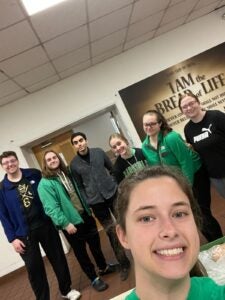
City Mission in Huntington.
“Another benefit that means a lot to me is planning and executing a community service project each year,” Trace said. “The best thing about this is that we get to pick what we do, so we can do something special to us, and it allows us to help individuals in need. Plus, I have been able to meet other students who will be joining me in medical school, giving us the ability to create a support system before we even begin our journey.”
While the program has been around for just a handful of years, Plymale said she is already blown away by the quality of the students who are participating and the work that they are doing. Last year’s community service projects led to an invitation for the students to present at the West Virginia Rural Health Association conference.
“This is the best part of my job,” Plymale said, adding that that the students pop into her office and volunteer to visit high schools to tell other students about both the Early Assurance and the BS/MD Program at Marshall, which is a three-year undergraduate pathway to medical school for students who know before college that they’re on their way to being a physician.
“They are so thrilled they found a pathway and that we’re working with them,” Plymale said. “That’s what is unique about Marshall – that sense of family that you can’t find just anywhere.”
Trace would agree, saying that the faculty in his undergraduate courses have been tremendous. Along with the Early Assurance opportunities, his courses in the biochemistry program have helped him feel prepared for medical school as well.
“Between the faculty in the biology and chemistry departments, I feel knowledgeable in the basic foundations of these subjects,” Trace said. “The faculty cares about our understanding of the material, and it shows when you reach out to them for help. Every time that I have gone to a professor’s office for help, they have given me their full attention and walked me through the concept or problem.”
Intermediate Biochemistry with Dr. Leslie Frost has been a favorite course so far, he said.
“In that class, I could see the relationship between all the chemistry and biology that I learned up to that point related to life and the functions of a human,” Trace said. “We learned the processes of metabolism and how they are related to common clinical problems and all the information was applicable in an everyday scenario.”
Medicine was a clear choice for Trace, he said. “My mom has been a nurse for more than 20 years, and growing up I had a lot of exposure to the medical field, and I fell in love with it,” he said. “That, combined with my interest in science and general learning and my passion to care for and help others, made becoming a doctor the perfect dream.”
After medical school, he hopes to be matched into an orthopaedic residency and then stay in West Virginia to practice. “I obviously must thank my parents,” he said. “They have supported me and my dream since I started saying I wanted to become an orthopaedic surgeon around the age of 7. I have to thank all the teachers and professors that I have had who have given me the knowledge that I needed to get this far. I want to thank all the physicians and nurses who have been role models for me and have shown me what kind of healthcare provider I aspire to be.”
Plymale hopes that both the Early Assurance and the BS/MD programs at Marshall continue to attract excellent students like Trace. “These students represent the future of healthcare in West Virginia,” she said. “Hopefully, after they graduate, they will continue to reinvest in our state by practicing here.”
To learn more about the Early Assurance Program at Marshall, visit jcesom.marshall.edu/admissions/md-early-assurance-program.


